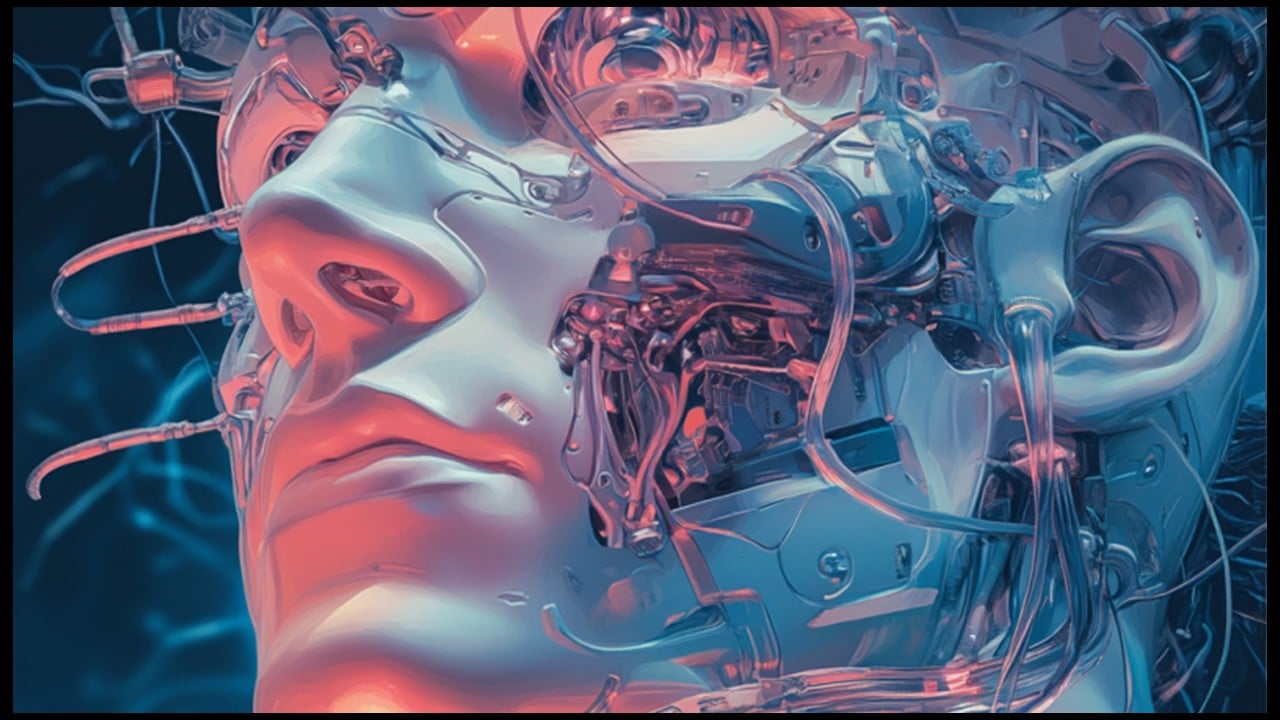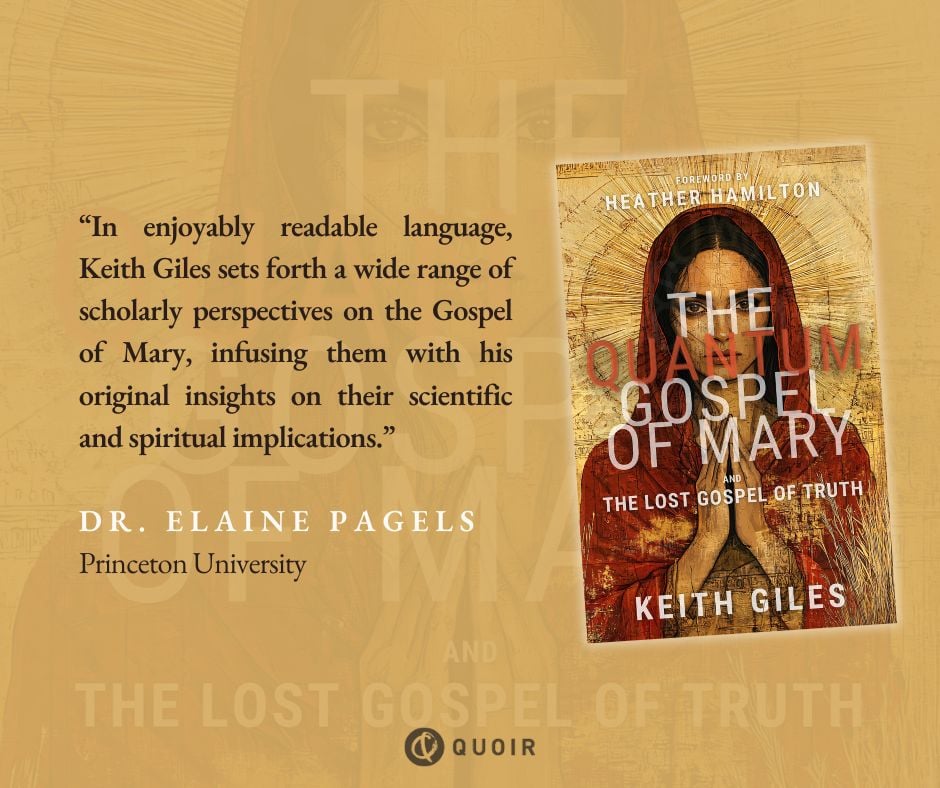
The day is coming, and is now here, when our ability to determine what is real and what is AI-generated will be stretched to the breaking point.
For example, there are AI assistants available now that are indistinguishable from real humans and can read your script better than any online influencer, making it impossible to know what is real and what isn’t.
The lines between reality and simulation are being blurred and erased right before our eyes.
Not only this, but OpenAI and other developers are currently working on AI companions that will have no screen at all. Instead, these AI assistants will simply talk to you through your earbuds whenever you need them and become your not-so-imaginary friend who can answer your questions, anticipate your needs, and coach you through your everyday life.
Some school districts are even contemplating new AI classrooms where AI instructors teach our children using multi-media entertainment and algorithms designed to optimize engagement.
What will this mean for humanity in the next two to ten years? How will this change reality and impact our daily interactions? How will humans know what is real and what isn’t? And will it even matter?
I was talking to a few friends about this this yesterday and one of them, Mark, said something that really got me thinking. He mentioned how Jesus and other mystics have taught us to go within to find truth rather than listen to those in power over us; the ones who want to manipulate us and keep us ignorant and under their control.
That reminded me of a conversation I had with Jim Palmer about 5 years ago where he shared three tools we can use to know what is true:
- Direct Experience
- Critical Thinking
- Self-Reflection
By learning to trust our own built-in ability to know what is true, we can develop and reinforce the skills we need to evaluate reality without relying our what others tell us to believe.
Over time, I’ve added a fourth item to that list simply because I’ve realized that sometimes my Direct Experience, Critical Thinking and Self-Reflection can merely confirm my bias and create a blind spot.
The fourth item is, Trusted Community. These are the people we surround ourselves with who love us and care about us and want what’s best for us. They are the people who will tell us when we’ve got spinach on our teeth, or our fly is open, or we’re missing something that’s obvious to everyone but us.
Practical Examples
- Direct Experience: Trust What You Can Touch
Direct experience refers to what you personally see, feel, hear, or undergo—sensory and emotional encounters with reality. In a world where opinions can be manipulated and narratives can be spun, direct experience grounds us in what actually happens to us.
Imagine you’re skeptical about meditation. You’ve heard people rave about its benefits, but it sounds like hype. Rather than relying solely on others’ testimonies, you try it yourself—five minutes a day for a month. You notice your stress levels drop, your focus improves, and you’re less reactive. That personal experience gives you a kind of truth no podcast or article can provide. It’s no longer just a claim; it’s real for you.
Whenever possible, move from “I heard” to “I experienced.” Direct contact with a phenomenon is one of the most reliable ways to assess its truth.
- Critical Thinking: Scrutinize the Source and Structure
Critical thinking is the disciplined process of analyzing and evaluating information, arguments, and evidence. It helps us filter out falsehoods, spot logical fallacies, and recognize our own cognitive biases.
Suppose a social media post claims that a specific diet “cures cancer.” Instead of accepting it at face value, critical thinking leads you to ask:
- Who is making this claim?
- What evidence supports it?
- Has it been peer-reviewed or tested?
- Are there conflicts of interest?
By answering these questions, you discover that the claim lacks scientific backing and is pushed by someone selling expensive supplements. Critical thinking helped you avoid a harmful falsehood.
Truth is often buried under layers of assumption, marketing, and bias. Asking the right questions exposes those layers.
- Self-Reflection: Know Thyself to Know the Truth
Self-reflection involves examining your own beliefs, emotions, and motivations. It’s about asking: Why do I believe what I believe? What am I afraid to question?
Let’s say you’ve always believed that hard work guarantees success. But after seeing a colleague work just as hard and still get laid off, you start to reflect. Maybe privilege, timing, and systemic issues play a larger role than you were willing to admit. By reflecting honestly on your beliefs and where they come from—your upbringing, values, fears—you begin to arrive at a more nuanced and truthful understanding of success.
The point is, truth-seeking is not just about the external world. It’s also about uncovering internal blind spots. Without self-reflection, we often believe what we want to be true rather than what is true.
- Trusted Community: The Collective Wisdom Test
Truth doesn’t live in isolation. We’re social beings, and a trusted community can provide support, correction, and alternative perspectives. But not all communities are created equal—trusted ones are characterized by honesty, humility, diversity of thought, and mutual respect.
Suppose you’re wrestling with whether a controversial political stance you’ve taken is justifiable. You bring it to your book club—a group of people you respect but who hold a variety of views. They challenge your assumptions, provide counterarguments, and share personal stories that reshape your perspective. You don’t leave the conversation with all the answers, but you leave with a deeper, clearer understanding.
A trusted community doesn’t echo your beliefs—it sharpens them. By being exposed to diverse viewpoints in a respectful setting, you’re more likely to uncover truths you couldn’t reach alone.
The Interplay of the Four
These four tools aren’t meant to work in isolation—they’re most powerful together. Direct experience may open the door, critical thinking helps interpret what you saw, self-reflection checks your internal biases, and a trusted community tests and expands your insights.
Example in Practice:
- You try it yourself (direct experience).
- You read up on its origins and scrutinize its claims (critical thinking).
- You ask yourself why you’re drawn to it—are you escaping something? Seeking meaning? (self-reflection).
- You discuss it with trusted friends or mentors who help you see it more clearly (trusted community).
This layered approach leads you not just to truth—but to a wiser and more integrated relationship with it.
How These 4 Resources Help Us Survive Unreality
The good news about this ever-increasing AI threat to our reality is that, as our ability to determine what is true and what is an AI-generated hoax grows weaker, this will inevitably necessitate our reliance on those 4 things – Direct Experience, Critical Thinking, Self-Reflection and a Trusted Community – to know how best to respond to what’s going on around us.
Now, I’m not saying that those 4 things will help us determine what clips are AI-generated or not. I’m saying that, once we learn to trust our own ability to know what is true, it won’t matter whether what we’re seeing and hearing comes from a computer or from a real person. What will matter most is whether we can discern what messages to accept and what to reject, no matter who created it or why.
If we can start developing our ability to apply Direct Experience, Critical Thinking and Self-Reflection to what we consume, we’ll become immune to the algorithm.
If we can start nurturing those connections with other people who can point out our blind spots and show us what we can’t see from our own limited perspective, we’ll be equipped to navigate the unreality of the AI-generated deception.
Developing these abilities and finding our community has never been more important. Without these 4 things, we’ll be hopelessly manipulated by advertisers, technocrats, oligarchs and politicians who want nothing more than to reduce all of us to mindless consumers who cannot reason or think for themselves.
Resist the algorithm. Fight the deception. Learn to think for yourself. Surround yourself with others who have your back.
It’s about to get surreal, my friends.
Stay strong.
**

The new book, “The Quantum Gospel of Mary and the Lost Gospel of Truth” is now available on Amazon.
The book from Keith Giles, “The Quantum Sayings of Jesus: Decoding the Lost Gospel of Thomas” is available now on Amazon. Order HERE>
Keith Giles is the best-selling author of the Jesus Un series. He has been interviewed on CNN with Anderson Cooper, Coast to Coast Radio with George Noory, USA Today, BuzzFeed, and John Fugelsang’s “Tell Me Everything.”
He co-hosts The Heretic Happy Hour Podcast and his solo podcast, Second Cup With Keith which are both available on Spotify, Amazon, Apple, Podbean or wherever you find great podcasts.
















